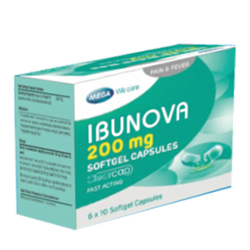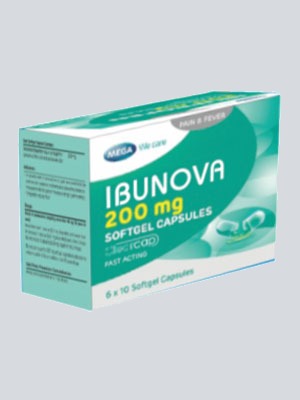- 01 OVERVIEW
- 02 WHAT'S IN IT?
- 03 INDICATIONS
- 04 HOW TO USE
- 05 AVAILABLE IN
DOFLAM is a soft gel capsule which can be used for pain relief. It contains diclofenac, a non-steroidal anti-inflammatory drug used to relieve pain, swelling, and joint stiffness. It has anti-inflammatory (reduces inflammation), analgesic (relieves pain) and antipyretic (treats fever) properties. Thus, DOFLAM can be used to treat symptoms of conditions like rheumatoid arthritis, osteoarthritis, pain after surgery and primary dysmenorrhea (cramping pain that occur before or during menstruation).
DOFLAM is manufactured using Clearcap technology, which enables faster absorption of the drug by the body, thereby showing its action in a short time.
Each capsule of DOFLAM contains:
Diclofenac potassium : 50 mg
DOFLAM may be recommended in the following conditions:
- Treating signs and symptoms of Rheumatoid arthritis and osteoarthritis
- Relieving post-operative pain associated with orthopaedic, gynaecological, oral or dental surgery
- Relieving pain caused by musculoskeletal sprains and traumatic joint distortions
- Primary dysmenorrhea
- Other mild to moderate pain.
The dosage of DOFLAM depends on the condition being treated or managed:
- For rheumatoid arthritis and osteoarthritis, you can take 1 capsule, 3-4 times daily after meals.
- To treat the symptoms of osteoarthritis, you can take 1 capsule, 2-3 times daily after meals.
- For dysmenorrhea and pain relief, you can take 1-2 capsules as initial dose and followed by 1 capsule every 8 hours as needed.
You can also consult your doctor for the dosage of DOFLAM and take according to his/her directions.
Thailand



